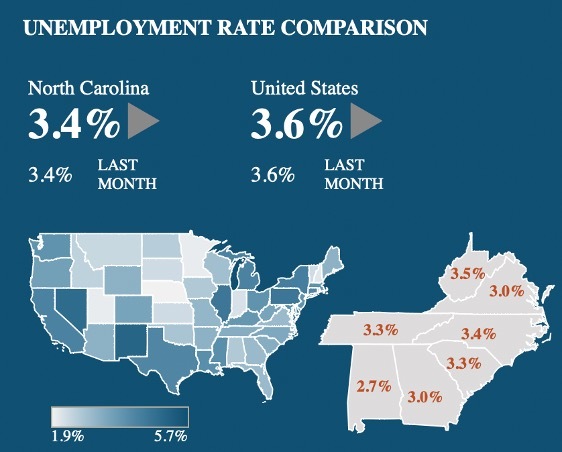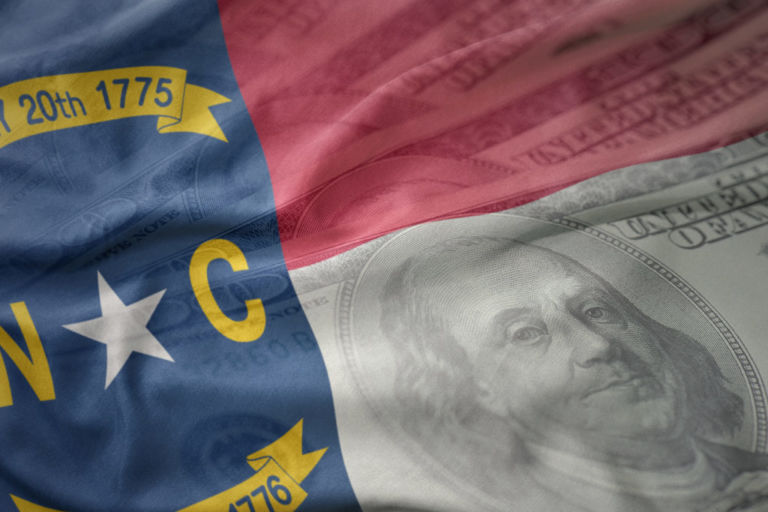Thousands of citizens in Eastern North Carolina have been affected by Hurricane Floyd. Many have lost their homes, possessions, jobs, and loved ones. There are problems and real needs, some of which should be the responsibility of state government. For example, state highways and other infrastructure must be repaired. Local governments may need help delivering essential services. And some North Carolinians failed to take precautions against flooding because of the state’s inability to provide accurate, timely flood-plain maps as required by statute.
While the federal government is providing funding to supplement preexisting federal disaster relief programs, the amount is far short of what Gov. Jim Hunt has requested. But Hunt’s emergency request of $1.8 billion appears to have been drafted hastily, with little analysis, and with inflated projections of cost. The real needs for which the state should bear some responsibility are likely to be far smaller than first thought, and can be met without new taxes or bonds.
Separating Rhetoric from Reality
Politicians are rightfully concerned about helping those in need, but the level of posturing has reached a new low. Sen. Tony Rand (D Cumberland) has suggested retaliation against North Carolina’s congressional delegation because the federal emergency package is lower than Hunt requested. “I don’t care who hands it out I just want to get it handed,” he reportedly said. “We don’t get a chance to vote on this disaster relief, but we do get a chance to vote on redistricting, don’t we?”1
Billy Ray Hall, Hunt’s point man in requesting federal help, told legislative leaders: “The numbers are not in debate. The question is the will to act and the timing.”2 He is incorrect. Many of the estimates are flimsy and questionable.
For example, a Sept. 22 story in the News & Observer stated that 5,000 students were homeless due to the hurricane and subsequent flooding. ECU officials interviewed about 2,700 students and eventually gave financial aid of $100 each to 1,700. However, when they ran ads encouraging affected students to apply to FEMA as well, only 5 students applied for further assistance. Only after ECU officials called all 2,700 students who may have been affected did they generate a total of 145 students to actually apply to FEMA.3 ECU does not know just how many of those 145 students were actually eligible for FEMA assistance.
In a separate effort to help Floyd victims, Gov. Hunt in conjunction with the United Way of North Carolina established a private relief fund. The United Way is administering the fund, but Hunt’s office has dictated which counties will receive money, how much each will get, and what criteria should be used to distribute the money.
So far, $13 million has been distributed. In early November, Franklin County received a check for $36,631, but decided to return the money. “We do not have any unmet needs associated with damage from Hurricane Floyd,” said Angela Harris, Director of Social Services for Franklin County.4Other counties have had to search for victims to spend the private money on. Harnett has received only three applications for the private money.5 Wake County officials launched a radio campaign and received 49 requests for a share of $72,066 from the governor’s fund but Wake County officials have no way of coordinating this assistance with any FEMA aid that these families may be receiving.6
Along similar lines, the Small Business Administration (SBA) reported in October that it was having a hard time finding applicants for existing loan programs. “I’ve got a whole bunch of disaster loan officers out there in 19 disaster recovery centers and three mobile recovery centers with nothing to do,” said Michael C. Allen, SBA’s disaster area director.7 Another example where an earlier estimate of need shrank upon further view was highway and bridge repair, which officials said initially would cost the state $70 million but later turned out to cost $28 million.8
The “Emergency” Request
The most clear-cut case of exaggerated needs uncovered so far is Hunt’s request for almost $1.8 billion in emergency assistance from Congress, a request that to date has not been granted. Several elements of the request are significantly inflated beyond any reasonable need. For example, some $52 million in supplemental disaster assistance was requested from the U.S. Department of Education for N.C. community college and UNC system students. The grants are for “unmet needs for adult students facing personal financial hardship.” After questioning from a reporter at the Locke Foundation, officials in both systems admitted major mathematical errors in compiling their requests, which now have been reduced to $19 million.9 In addition to these math errors, they made major conceptual errors. Of the 92 students who have withdrawn from ECU citing reasons associated with Hurricane Floyd, university officials said that none of the students cited financial hardship.10 So if the Hunt administration actually received any money from this request, they will have a difficult time finding victims.
The issue of emergency assistance to families who lost their homes to flooding is confusing, to say the least. For some, the answer is federally subsidized flood insurance, but many affected homes are not enrolled for a variety of reasons. Existing SBA programs provide loans to families seeking to rebuild their homes. In addition, FEMA provides limited grants to families needing to replace personal property or who need housing assistance but are not eligible for other aid. Finally, FEMA funds programs to purchase homes in flood plains and move families elsewhere. To determine what, in addition to these preexisting programs, is needed requires careful study. In an interview, a state emergency official stated that the state wished to provide aid to 7,666 families whose homes were flooded but were not eligible for other assistance. The average home value was $45,000.11Even if the state provided a grant equal to half the cost of each home, the total expenditure would be $171 million far less than the $542 million in Hunt’s request for supplemental housing assistance. In fact, if the state purchased every home at its pre-flood price an inadvisable policy, since it would destroy the market for flood insurance and punish those who previously bought it the bill would be far less than Hunt’s request.
Other items from the request were also significantly inflated. A request for a supplemental appropriation of $53.2 million to help North Carolina airports repair runways and reopen normal service may sound reasonable, but airports are already eligible for Federal Aviation Administration funding based on need. In reality, only three airports, two very small, were submerged by the flood.12
Another item, $21 million to provide child care assistance to 7,500 children for a year, appears to have merited no serious thought at all. When asked, a spokeswoman for the state agency overseeing child care subsidies said that there was “no particular mathematical formula behind it.”13It shows. To increase the number of children eligible would require a reduction in family income say, the loss of a job due to the storm. But unemployed workers typically don’t need long-term child care. If 15 percent of all workers filing disaster unemployment claims with the state 4,499 as of Nov. 10, 1999 needed a total of 4 weeks of subsidized child care to allow for job-search activities, the cost would be around $400,000, or about two percent of the amount requested by Hunt.
Evaluating the True Need for State Relief
The magnitude of the state and federal relief effort in the aftermath of this fall’s hurricanes has already been large. FEMA operated 21 disaster-recovery centers for about two months, receiving more than 57,000 applicants for state and federal aid as of November 22, 1999. Nearly $500 million in disaster-aid money has been received for North Carolinians, including $297 million in SBA loans to about 6,000 homeowners and business operators, $50 million in housing assistance for 28,500 applicants, $43 million in debris removal and infrastructure repair, and $54 million for claims from federal flood insurance.14 Furthermore, although state leaders were disappointed with Washington’s refusal to fully fund Hunt’s $1.8 billion request, Congress did authorize emergency funds equal to about half that amount, bringing the total for government disaster relief before any special action by the state legislature to more than $1 billion.15
The question before state policymakers, particularly after Hunt’s package failed to pass Congress in its original (inflated) form, is what additional needs, if any, should be met by supplemental state appropriations in a special session. Several legitimate obligations come to mind. First, the state has a responsibility to rebuild damaged state infrastructure, such as roads, not already covered by repair programs. It should assist ailing local governments, which are, after all, creatures of the state, in providing basic services or making up some revenue shortfalls caused by storm damage. And it bears some responsibility for flood damage in areas where the state’s inability to deliver timely and accurate flood plain maps led to individuals or businesses taking on risks which they had no opportunity to evaluate.
The need for state aid is less clear with regard to business and farm damage. Washington already funds many loan programs
for businesses and farms. N.C. businesses will be eligible for many hundreds of millions of such assistance without additional state spending. Some favor supplementing these programs with federal or state grants. But their reasoning is unsound. If businesses or farms are planning to reopen and become viable again, then any aid should be given in the form of loans, even low-interest ones with generous terms. On the other hand, if businesses or farms aren’t reopening, government grants would really only benefit the creditors of the destroyed businesses, whose loans aren’t going to be repaid otherwise. Lenders should face accurate risks, particularly when they invest in enterprises in flood-prone areas. To bail them out is to subsidize risky behavior and reduce the incentive for lenders to demand flood insurance or other provisions in the future.
Availability of State Funds For Relief
Hunt, legislative leaders, and other observers have suggested that new taxes or bond issues might be needed to fund additional state recovery efforts. “It looks like to me the people of this state are going to be forced to take action, and we may have to be bold with some actions in this body, regardless of the politics of it, to get North Carolina out of a ditch,” said Rep. David Redwine (D-Brunswick), reflecting the general mood among many policymakers.16
The available evidence suggests that no such action is needed. It is impossible to determine with precision what the state’s ultimate cost should be for supplemental hurricane relief. But given inflated nature of many requests for aid, it is hard to imagine a total bill exceeding the amount already available in General Fund dollars. Even given recent fiscal trends and court-ordered settlements on illegal taxes, the state will probably have more than $1.2 billion for FY 2000-01 to spend on hurricane relief and expansion budget items (see table below). Some new, recurring expenses may have to be curtailed or delayed due to increasing demands on revenue availability, but relief expenditures will, by and large, represent one-time expenditures only. They will not, in the long run, impair the state’s ability to meet increasing demand for its core services.
No new taxes or bond issuances will be needed to fund true state obligations such as repairing infrastructure, helping local governments, and alleviating immediate human suffering. Existing federal programs will pay for much of the needed aid, while significant state expenditures for homes and businesses within flood plains lacking flood insurance would have a devastating impact on the market for flood insurance. At this point, there appears to be no Floyd fiscal crisis only a crisis of confidence in the ability of state officials to provide serious, defensible estimates of need.
Don Carrington, Vice President
Deflating Projections of Needed Hurricane Relief 
Projected General Fund Availability FY, 2000-01 
Notes
- David Rice, “State leaders angry over amount of U.S. flood aid,” Winston-Salem Journal, November 18, 1999 (on-line version).
- Ibid.
- Nov. 15, 1999 conversation with Manny Amaro, Housing Director, East Carolina University
- Nov. 12, 1999 conversation with Angela Harris, Director of Social Services, Franklin County
- Nov. 22, 1999 conversation with Mildred Page, Harnett County Social Services Office
- Nov. 22, 1999 conversation with Barbara Wilder, Program Manger Service Intake and Emergency Assistance, Wake County Human Services Department.
- Tom Murphy, “SBA in need of disaster loan applications,” Rocky Mount Telegram, October 29, 1999, p. 1A.
- Bob Williams and Matthew Eisley, “Why epic flooding took state by surprise,” The News & Observer, October 10, 1999; and Kim Nilsen, “Floyd damage poses dilemma,” Fayetteville Observer-Times, November 5, 1999 (on-line versions).
- Nov. 17 and Nov. 19, 1999 conversations with Gary Barnes, Vice President for Program Assessment and Public Service, UNC System; and Audrey Baily, Spokeswoman for NC Department of Community Colleges.
- Nov. 12, 1999 conversation with Rose Mary Stelma, Director of Financial Aid, East Carolina University
- Nov. 11, 1999 conversation with Eric L. Tolbert, Director, Division of Emergency Management, NC Department of Crime Control and Public Safety
- Nov. 19, 1999 conversation with Bruce Mathews, Sr. Program Manager, Division of Aviation, NCDOT
- Nov. 19, 1999 conversation with Margaret Guess, Budget Officer, Division of Child Development, NC Department of Human Resources.
- “FEMA buys first 16 at-risk N.C. homes,” The Winston Salem Journal (AP), November 22, 1999 (on-line version).
- Dennis Patterson, “Renfrow Says Quick Response to Floyd Will Help State in Long Run,” WRAL On-Line (AP), Nov. 22, 1999(on-line version).
- Ibid.


